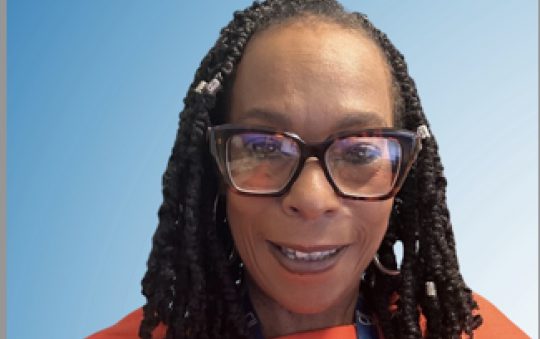
Every week for 25 years, I have hit Our People Barbershop in Carson to see Tracy Prince for a fresh bald fade. As a Black woman entering a predominantly male space, I recognize Black barbershops as places of learning and community.
Black men and boys, young and old, get exposed to ideas at the barbershop that teach them about who they are or hope to become. Like other shops throughout the country, there are passionate discussions about sports, politics, and issues impacting our communities and the world.
Despite the openness in these spaces, conversations about personal struggles, particularly mental health, remain scarce. Tracy says, “I see the fellas in here downplaying heartbreaks, making light of job losses, and masking their emotional pain, often dismissing their struggles with a simple, ‘It’s all good.’”
But it’s not. According to the CDC, suicide is the third leading cause of death for Black Americans ages 15 to 24, and Black men are four times more likely to take their own life than Black women. The State of Black Los Angeles reports that Black adults are more likely than white and Latino adults to experience persistent symptoms of depression. Couple these stats with undeniable biases against Black youth in education following them through an unjust justice system makes it a difficult time to be a Black male.
However, as mental health challenges continue to rise, so has increased awareness and opportunities for positive change. Organizations like Movember use November to highlight men’s health issues, including raising money to provide mental health support to men worldwide. In Los Angeles, the Black Emotion and Mental Health Collective (BEAM) illustrates a necessary shift toward holistic well-being in our communities. Through its Black Masculinity Reimagined, a community- and skills-building program, BEAM trains and supports Black men and masculine folks with addressing mental health and community violence.
A two-pronged empathetic approach is needed to continue addressing Black men’s mental health: acknowledging the problems and providing comprehensive solutions. First, we must foster inclusive communities, promote cultural competence in education, and dismantle systemic biases that have long plagued Black men and boys. We must also empower young Black men to express themselves without fear, shame, or judgment. Tracy believes, “If we bridge the gap between young brothas and the old heads, we could chop it up about everything – the good, the bad, the ugly, and the sad.”
Transforming our barbershops into cultural sanctuaries of mental health support for men fosters fellowship, empowers action, and opens dialogues about the issue. In doing so, we celebrate our culture and contribute to breaking the generational cycles of silence surrounding mental health, ensuring that Black men thrive in every aspect of their lives. I am here for it and my brothers.
To learn more about free behavioral health services offered to anyone through Planned Parenthood Los Angeles’ Black Health Initiative, visit https://www.plannedparenthood.org/planned-parenthood-los-angeles/black-health-initiative.
Kara James, a Nurse Practitioner at Planned Parenthood Los Angeles since 2019, champions racial equity and anti-racism in her clinical care. In 2020, she spearheaded the launch of the Black Health Initiative to enhance holistic well-being in Los Angeles’ Black communities.





